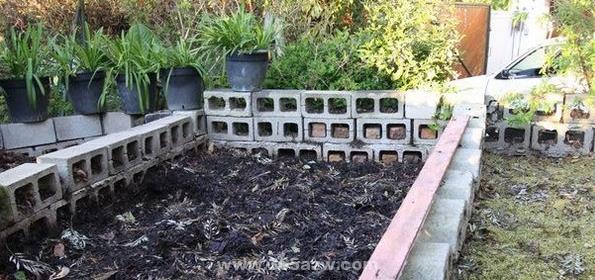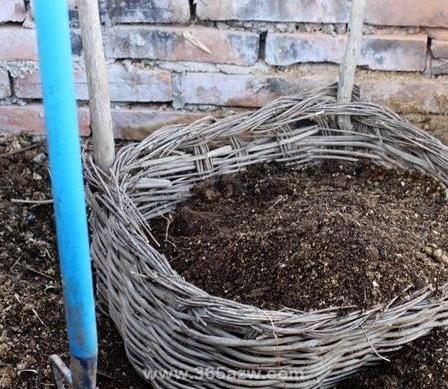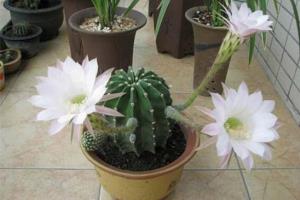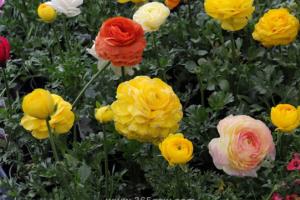Flower friends teach you how to make compost by hand.
I am interested in composting because, on the one hand, I have to buy and use a lot of organic fertilizer every year, on the other hand, my kitchen waste, sawdust, withered branches and leaves and other materials that can make compost themselves are basically discarded and wasted.
When I knew I could make compost two years ago, I built a composting pool in the corner of the vegetable garden, but it didn't look like what I wanted it to look like-it was too small for the shovel to reach in and turn, and it was difficult to get the retted fertilizer out. So much so that the built compost pool became a garbage pool.
With regard to composting, he stubbornly believes that it is not worth doing at all. I stubbornly believe that composting is not only necessary but also needs to learn how to compost. Composting, in large terms, is good for the environment; in small terms, it is good for yourself, why not do it?
Without his support or explanation, I began to transform the composting pond myself in this Qingming Festival short holiday without hesitation. When he was demolishing the pool, he happened to be seen by a peasant friend at home. He said, "I have a cutting machine at home. I'll cut the brick for you tomorrow."
There are many ways to compost online, but I always like to simplify everything. In fact, composting itself is really simple-pile withered branches and leaves, kitchen waste (excluding meat and other cooked food) together and add a certain amount of water. it is best to cover the top with plastic cloth to increase the temperature inside to speed up the composting process, which can be made once a month, half a year to a year. In fact, I think it doesn't matter whether I turn it or not. The purpose of turning is to make compost faster. The high-temperature compost in the countryside in the 1970s was closed without turning, but it was also very successful.
Composting containers can be large or small, complex or simple, large can build a pool fence, a small bucket can also, or even buried deep on the ground.
Balcony flower growers want to do compost, there are special composting books to refer to. I have read the electronic version of the Encyclopedia of Home composting in Taiwan. There are six special ways for Yangtai people to do composting: open kitchen waste composting suitable for entry, linen bag composting that does not take up space, convenient combination of ventilated composting boxes, sawdust cat litter composting for cat lovers, earthworm compost with the most use, small and simple kitchen waste buckets sold in the market, etc., and explain the specific methods in detail one by one.
It was nice to see their compost pool in the garden hotel of Liz, South Africa. The compost was swarthy and swarthy.

The fertilizer made by myself is much better than the flower soil sold in the market, and it has no taste at all. But I have no experience in the past. Everything is thrown in the pool. When composting is made, it is necessary to check out the large pieces of bark, wood, cigarette cases, peanut bark, thick branches and so on that cannot be decomposed.

What is compost?
Compost is a mixture of many kinds of organic matter and can be used as fertilizer.
Although by organic matter we mean anything that was once alive, generally speaking, the materials used for composting come from our gardens / gardens and kitchens (food waste).
Composting is caused by the final decomposition and decay of various components. Composting can take 2-18 months from production to use.
Composting process
Composting is a process that mimics nature by recovering and reusing organic matter.
Just like baking cakes, composting requires the right mix of ingredients and enough time for each substance to be fully "cooked", that is, to be fully decomposed before the compost is ready. (note: substances that are not fully decomposed can cause harm to plant life. )
With decomposition, organic matter changes and becomes what we know as humus. In this process, organic matter is converted by soil microbes, earthworms and insects into a soil-like substance that can be used in a vegetable garden / garden.
There are many ways to compost, and here we focus on the three most common and effective methods-using composting piles / buckets, earthworm composting and deciduous composting.
Related
- Wuhan Hospital Iron Tree Blooming Result Was Instantly Frightened by the Gardener Master
- Which variety of camellia is the most fragrant and best? Which one do you like best?
- What is the small blue coat, the breeding methods and matters needing attention of the succulent plant
- Dormancy time and maintenance management of succulent plants during dormancy
- Minas succulent how to raise, Minas succulent plant pictures
- What are the varieties of winter succulent plants
- How to raise succulent plants in twelve rolls? let's take a look at some experience of breeding twelve rolls.
- Attention should be paid to water control for succulent plants during dormant period (winter and summer)
- Watering experience of twelve rolls of succulent plants
- Techniques for fertilizing succulent plants. An article will let you know how to fertilize succulent plants.



